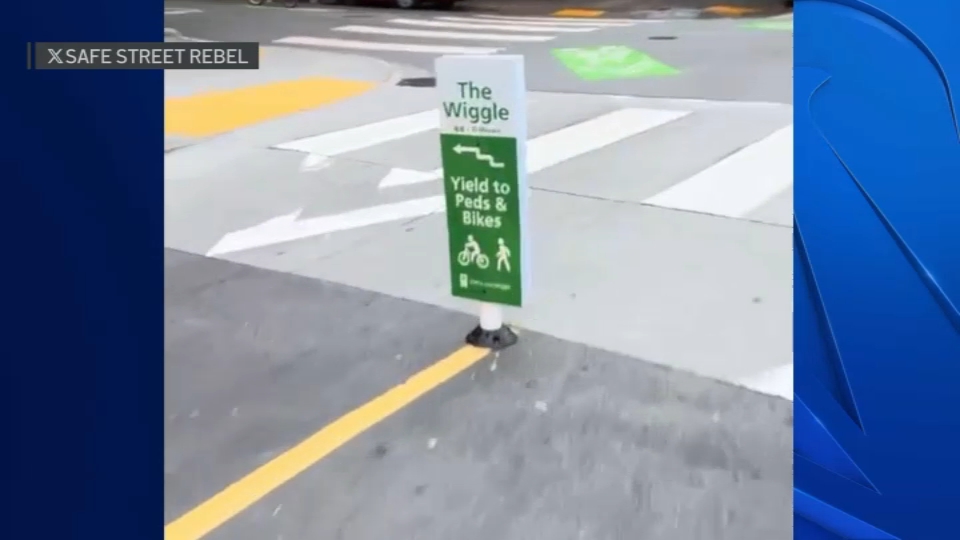San Francisco is home to one of the most expensive housing markets in the country. With rent prices soaring, more and more people are looking to earn some extra cash by renting out their homes to tourists through websites like Airbnb and Craigslist.
But as the NBC Bay Area Investigative Unit uncovered, many of these listings are illegal, with thousands breaking the law each day and getting away with it.
Short-term rentals can be a big payday for landlords, but that means less housing and higher prices for anyone looking for a place to live.
The San Francisco Board of Supervisors first identified the crunch on affordable housing in the 1980s when the city moved to ban all short-terms rentals. The measure was intended to stop landlords from converting residential homes into makeshift hotels.
Last year, the city loosened those restrictions, allowing permanent residents to rent out their homes if they register with the Office of Short Term Rentals and follow certain restrictions.
SHORT TERM RENTAL REQUIREMENTS
- Hosts must live in the home they’re renting – it has to be their “primary residence”
- 90 day/year limit on the number of days guests can stay in a home when the resident host is away
- Hosts can only register and rent out one property
Mary Former says she was one of the first to sign up. “I have certificate number one,” Former proudly told NBC Bay Area. The 71-year-old retiree says hosting guests helps her pay the bills.
Local
Since February of last year, 1,281 other hosts have also registered with the city. However, that number is a far reach from the 7,046 hosts that Airbnb acknowledges are listing more than 9,000 properties in San Francisco. That means at least 82 percent of hosts are breaking the law.
ENFORCEMENT OF SHORT TERM RENTALS
Kevin Guy oversees San Francisco’s permitting process as the Director of the Office of Short-Term Rentals.
“I think there is work to be done and it is important for us to get the word out about the need to register,” Guy said.
With a staff of just six people, Guy said his office is trying to make the application process easier for residents, while cracking down on those who try to game the system and operate illegal hotels.
Over the last year, the city has assessed more than $700,000 in fines, and has so far collected those penalties from owners of at least 94 properties.
Still, some members of the San Francisco Board of Supervisors, including David Campos, are upset at the lack of oversight.
“Enforcement is certainly not meeting even basic standards of what you would consider acceptable,” Campos criticized at a January council committee meeting.
“If there are legislative changes that the Board sees is necessary to make the program work differently, then we will adapt to those changes in the legislation,” Guy told the Investigative Unit.
To help weed out illegal rentals, the city contacted the internet’s biggest home sharing companies, Airbnb, Craigslist, Flipkey, and Homeaway/VRBO.
Among other things, the city asked the companies to require hosts in San Francisco to include their registration number in online ads.
That was more than 4 months ago and Guy says those companies have yet to accommodate the city’s requests.
Airbnb told NBC Bay Area they’ve had multiple conversations with the city and are working to remove some illegal rental ads from its site. The company still believes the city’s registration process is too complicated and, therefore, does not require its users to get a city permit.
As for the other websites, they never got back to us.
ILLEGAL RENTALS ENDURE THROUGHOUT THE CITY
Despite Airbnb’s attempts to remove illegal ads, the Investigative Unit found that many still remain. In a sample of 10 properties listed on Airbnb, city records showed 8 are not registered.
The Investigative Unit went undercover and checked into one of those unregistered rentals in San Francisco’s Richmond District.
The owner told our hidden camera while she owns the building, she doesn’t live there. City records show the building owner was previously cited for illegally operating a short term rental at another apartment complex in Nob Hill.
The Investigative Unit found dozens of other users renting out multiple properties at a time, including one profile that listed 30 different rentals across the state. Three of them are in San Francisco.
In April, Supervisor Campos introduced a bill that would streamline the registration process and penalize homeshare websites like Airbnb when users post illegal properties. The San Francisco Board of Supervisors is expected to take up that debate over the next few weeks.
Former believes those who break the law drive up housing prices and compete with an unfair advantage.
“Obviously, things have gotten out of hand. . . people were buying up all houses and converting them into short-term rental hotels,” Fromer said. “The people that live and work here have no place to go.”
______________________________________
Need to contact our Investigative Unit?
• You can remain anonymous
• 1-888-996-TIPS
______________________________________
Watch the entire series in this NBC Bay Area investigation:
- Part 1: Thousands Violate SF Housing Laws Using Airbnb, Few Face Penalties
- Part 2: Illegal Short-Term Rentals Can be Nightmare for Neighbors
- Part 3: San Francisco Lawmakers Could Soon Force Airbnb, Other Home-Sharing Websites to Make Major Changes
- Part 4: Airbnb Sues SF to Block New Law Aimed at Delisting "Illegal Rentals"
- Part 5: SF Law Targeting "Illegal Rentals" on Hold as City Battles Airbnb Lawsuit
- Part 6: Airbnb Heads to Federal Court Over Lawsuit Against San Francisco
- Part 7: Judge Raises Doubts Over Airbnb's Lawsuit Against San Francisco
- Part 8: Judge Orders SF to Hold Off on Airbnb Fines and Penalties
- Part 9: Airbnb and SF Meet Privately to Settle Bitter Lawsuit
- Part 10: San Francisco Limits How Often Hosts Can Use Airbnb
- Part 11: Airbnb's New Rules Abroad Could Impact San Francisco
- Part 12: SF Issues $1.1 Million in Fines to Hosts Using Rental Sites Like Airbnb
- Part 13: Thousands of Airbnb Rental Listings in SF Could Soon Be Purged



